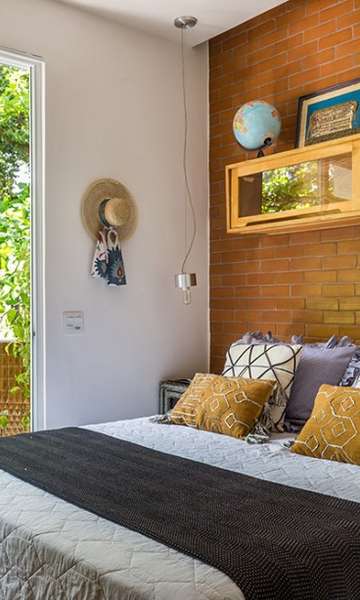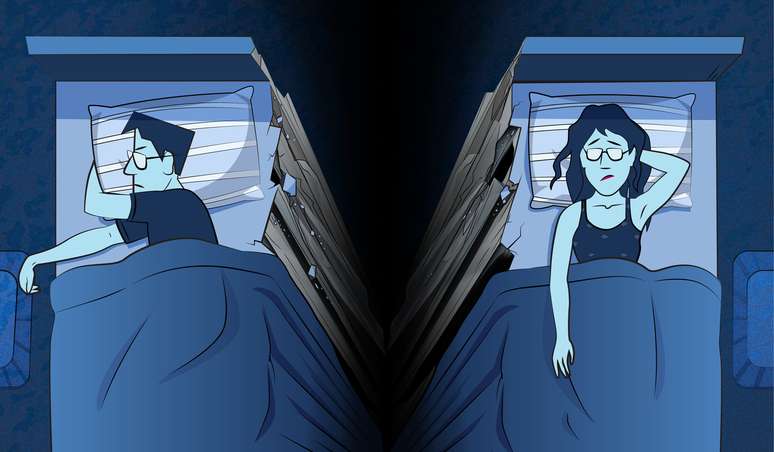Some celebrities are fans of the trend that has caught the attention of both traditional and modern couples
In the world of intimate relationships, a new phenomenon has slowly emerged among couples: the decision to live together and sleep in separate rooms. While sharing a bed has traditionally been seen as a symbol of intimacy and togetherness, the idea of sleeping in separate bedrooms is gaining acceptance and even popularity.
Famous couples such as Sheron Menezzes and Saulo Bernard, Kadu and Cristianne Moliterno, Mauro Mendonça and Rosamaria Murtinho, Fernanda Lima and Rodrigo Hilbert, have already revealed that they sleep occasionally or have slept in separate rooms.
In conversation with the Earththe psychologist Larissa Fonseca states that sleeping in separate rooms can be helpful when there are significant differences in sleep patterns, such as temperature preferences or sleep disturbances.
“In situations of stress, health problems or the need for personal space, this practice can provide an environment more conducive to individual rest. The key is a mutual and consensual decision, keeping communication open to preserve emotional intimacy in the relationship” explains the expert.

How to choose the ideal pillow based on your way of sleeping
pros and cons
Among the advantages of a couple sleeping separately, the professional highlights:
Sleep quality: It can improve the quality of sleep of both partners, especially if they have sleep disorders or different chronotypical patterns (times for waking up or sleeping), have other habits that can disturb each other’s sleep.
Personal space: Providing personal space and privacy can be beneficial to each partner’s emotional well-being, as well as allowing mystery and curiosity into the relationship.
As regards the points that could harm the relationship after the decision not to share the same bed, the psychologist highlights:
Intimacy: Some people argue that sleeping in separate rooms can decrease intimacy and emotional connection between partners as it reduces intimate sharing time. Therefore it is essential to reserve time for the couple.
Communication: There is concern that physical distance at night could lead to reduced communication and less sharing of daily experiences.
Social stigma: In some cultures, there is still a stigma associated with couples sleeping apart, which can generate social pressure.
However, Fonseca underlines that it is important to cultivate moments of physical closeness, such as hugs and kisses, even if outside the context of the bedroom.
“The physical expression of affection contributes to the feeling of emotional closeness. Investing in activities that you both enjoy, such as shared hobbies or doing physical activity together, also promotes bonding,” says the psychologist.
“By establishing a solid foundation of trust and communication, couples can overcome the challenges of sleeping in separate bedrooms and continue to strengthen their emotional bond.”
Maintaining spontaneity and novelty in the relationship, whether through little adventures or surprises, also helps keep the relationship lively. The professional also recommends taking a moment”It gives you” during the week or every 15 days to date, preserving the couple’s moment and focusing on pleasing the other.
Source: Terra
Ben Stock is a lifestyle journalist and author at Gossipify. He writes about topics such as health, wellness, travel, food and home decor. He provides practical advice and inspiration to improve well-being, keeps readers up to date with latest lifestyle news and trends, known for his engaging writing style, in-depth analysis and unique perspectives.








